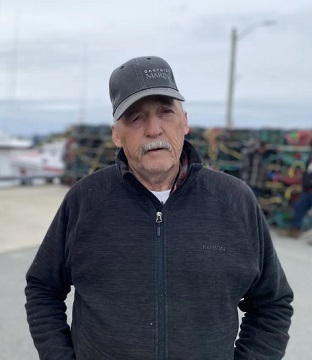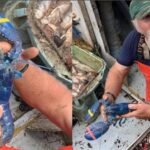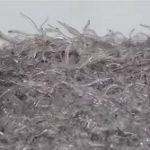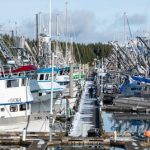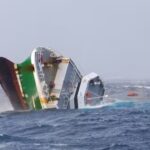Tag Archives: Gulf of St. Lawrence
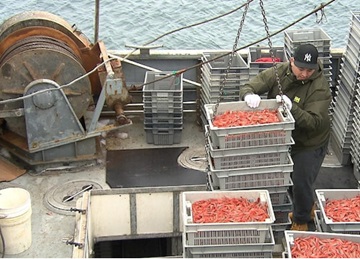
Northern Shrimp fishing: DFO proposals do not pass muster in the industry
Northern shrimp fishermen from Quebec and the Atlantic wholeheartedly reject the new precautionary approach presented by Fisheries and Oceans Canada (DFO) scientists to protect stocks. The fishing associations of Quebec, New Brunswick and Newfoundland and Labrador, industrialists and DFO scientists were gathered during two days for the advisory committee which ended Wednesday in Quebec. Northern shrimp stocks in the Estuary and Gulf of St. Lawrence are not likely to improve, according to Fisheries and Oceans Canada. >>click to read<< 11:47
Shrimp fishing: gloomy outlook and angry fishermen
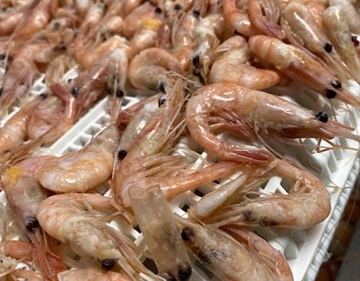 The state of northern shrimp stocks in the estuary and Gulf of St. Lawrence will not improve in the short and medium term and could even continue to deteriorate. It is this grim observation that Fisheries and Oceans Canada shared with the fishermen and processors gathered Tuesday in Quebec for the first day of the shrimp advisory committee of the Estuary and Gulf of Saint -Laurent. DFO biologists have clearly identified redfish predation as one of the main causes of the decline of shrimp stocks in the four fishing areas of the Estuary and Gulf. The warming of the water in the Gulf and the significant drop in oxygen levels also explain the drastic fall in northern shrimp stocks.>>click to read<<14:12
The state of northern shrimp stocks in the estuary and Gulf of St. Lawrence will not improve in the short and medium term and could even continue to deteriorate. It is this grim observation that Fisheries and Oceans Canada shared with the fishermen and processors gathered Tuesday in Quebec for the first day of the shrimp advisory committee of the Estuary and Gulf of Saint -Laurent. DFO biologists have clearly identified redfish predation as one of the main causes of the decline of shrimp stocks in the four fishing areas of the Estuary and Gulf. The warming of the water in the Gulf and the significant drop in oxygen levels also explain the drastic fall in northern shrimp stocks.>>click to read<<14:12
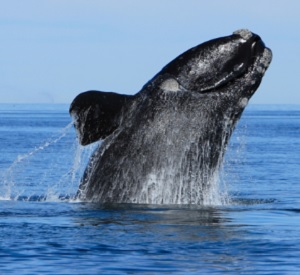
North Atlantic right whale population has steadied, scientists say
The population of critically endangered North Atlantic right whales appears to have levelled off after a decade of steep decline, according to updated data released this morning by Canadian and American scientists. Every fall, the North Atlantic Right Whale Consortium releases its best population estimate of the world’s most threatened large whale. Scientists in the consortium said Monday that the 2021 estimate of 340 North Atlantic right whales in existence has been recalculated to 365 primarily because of the number of calves born that year. The estimate for 2022 is 356. >>click to read<< 09:52
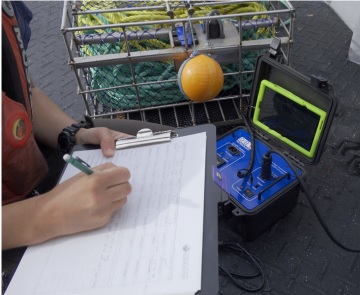
Gear-lending program has harvesters working through closures and trying ropeless fishing gear without commitment
Snow crab fishers in one area of Nova Scotia had a new visitor this season and found themselves closed out of their fishing waters. “We got a 37 percent cut in our quota and [Northern right] whales presented themselves in our zone for the first time ever so [it was] quite stressful,” said Marc Lefort, a snow crab harvester in western Cape Breton Island and a member of Area 19 Snow Crab Fishermen’s Association in Cheticamp, N.S. He’s been fishing for 19 years in the area. “It was a challenging season.” The Northern right whale is critically endangered and conservation efforts have targeted fisheries using fixed gear, or traps connected to buoys by rope. Because whales can be entangled in the fishing gear, fisheries for lobster and snow crab have been forced to think of new measures – and new fishing gear – to protect the marine mammals. >>click to read<< 12:24
Cost of Canada’s new flagship ocean science vessel jumps a further $300M
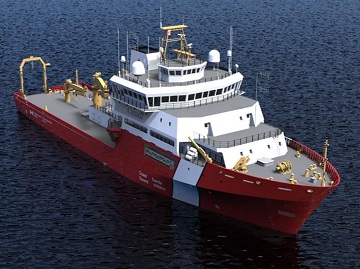 The budget for Canada’s new flagship ocean research ship increased 28 per cent this year jumping from $995 million to $1.28 billion. Construction of the offshore oceanographic science vessel is underway at the Seaspan Shipyards in North Vancouver, B.C., as part of the National Shipbuilding Strategy.It will replace the decommissioned Canadian Coast Guard Ship Hudson — now at a wreckers yard — to provide scientific and ocean mapping missions in Atlantic Canada. The offshore oceanographic science vessel is the key platform to track climate change in the Atlantic Ocean and Gulf of St Lawrence. Delivery is expected in 2025 and the ship will be based in Dartmouth, N.S.>>click to read<< 11:53
The budget for Canada’s new flagship ocean research ship increased 28 per cent this year jumping from $995 million to $1.28 billion. Construction of the offshore oceanographic science vessel is underway at the Seaspan Shipyards in North Vancouver, B.C., as part of the National Shipbuilding Strategy.It will replace the decommissioned Canadian Coast Guard Ship Hudson — now at a wreckers yard — to provide scientific and ocean mapping missions in Atlantic Canada. The offshore oceanographic science vessel is the key platform to track climate change in the Atlantic Ocean and Gulf of St Lawrence. Delivery is expected in 2025 and the ship will be based in Dartmouth, N.S.>>click to read<< 11:53
4 North Atlantic right whales spotted in Bay of Fundy
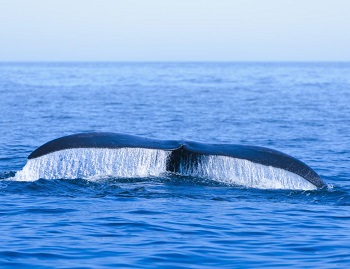 Four North Atlantic right whales were spotted Saturday in the Bay of Fundy — the first documented sighting of the species in that area this year. “Every sighting is very important,” said Dion, noting how few North Atlantic right whales exist. Dion said she and the team quickly began documenting the sightings and called the Canadian Whale Institute for official documentation. The Department of Fisheries and Oceans was also contacted, along with Fundy Traffic. They were able to identify the four whales as North Atlantic right whales, a welcome confirmation. >>click to read<< 19:04
Four North Atlantic right whales were spotted Saturday in the Bay of Fundy — the first documented sighting of the species in that area this year. “Every sighting is very important,” said Dion, noting how few North Atlantic right whales exist. Dion said she and the team quickly began documenting the sightings and called the Canadian Whale Institute for official documentation. The Department of Fisheries and Oceans was also contacted, along with Fundy Traffic. They were able to identify the four whales as North Atlantic right whales, a welcome confirmation. >>click to read<< 19:04
3 victims identified after fishing boat sinks near Quebec’s Lower North Shore
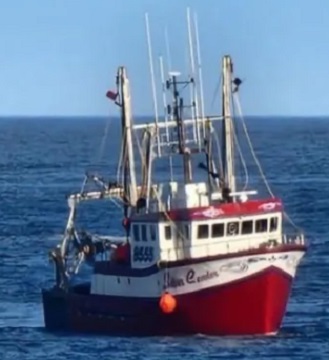 Quebec provincial police have identified the three people who died after a fishing vessel capsized and sank in the Gulf of St. Lawrence near Quebec’s Lower North Shore. Dean Lavallée, 53, Yves Jones, 65, and Damon Etheridge, 36, were all from Blanc-Sablon, Que. The three men were among six people aboard the 18-metre-long Silver Condor sailing near La Tabatière, Que., early Monday morning. Lavallée owned and operated the Silver Condor. The crew left Friday to look for redfish and were on their way back when the ship sank, said Blanc-Sablon Mayor Andrew Etheridge, who is a cousin of Damon Etheridge. “He’s just the kind of guy who puts other people before him,” Etheridge said of his cousin. >>click to read<< 15:47
Quebec provincial police have identified the three people who died after a fishing vessel capsized and sank in the Gulf of St. Lawrence near Quebec’s Lower North Shore. Dean Lavallée, 53, Yves Jones, 65, and Damon Etheridge, 36, were all from Blanc-Sablon, Que. The three men were among six people aboard the 18-metre-long Silver Condor sailing near La Tabatière, Que., early Monday morning. Lavallée owned and operated the Silver Condor. The crew left Friday to look for redfish and were on their way back when the ship sank, said Blanc-Sablon Mayor Andrew Etheridge, who is a cousin of Damon Etheridge. “He’s just the kind of guy who puts other people before him,” Etheridge said of his cousin. >>click to read<< 15:47
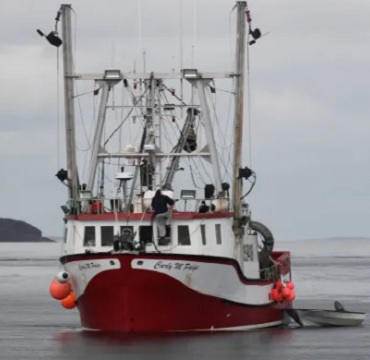
3 dead after boat sinks near Quebec’s Lower North Shore
Three people are dead after a fishing vessel capsized and sank just off La Tabatière, on Quebec’s Lower North Shore, Quebec provincial police say. Three others were taken to hospital in Corner Brook, N.L. The Canadian Coast Guard says the vessel was the F/V Silver Condor, from Blanc-Sablon, Que. A distress signal was received around 2:30 a.m. Monday morning. Six ships from the Department of National Defence and the Canadian Coast Guard took part in the search. The ship went down about 25 kilometres off shore, in the Gulf of St. Lawrence. >>click to read<< 16:40
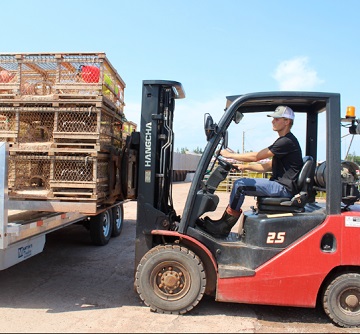
Fall lobster fishers hoping for a prosperous season
“We always look forward to going fishing,” said Mark Arsenault, president of the Prince County Fishermen’s Association. “It’s a gamble, you look to see if you’ve got a winning hand or not.” While prices have been looking good in the lead up to the season that starts on Aug. 9, one concern on the minds of fishers is if there will be any more grid closures should any more North Atlantic Right Whales be spotted in the Gulf of St. Lawrence. “There’s an area that’s closed and it looks like it’s going to be closed until November,” said Mr Arsenault. “It’s deep water, from the 24/25 line to probably close to Miminegash. We’re trying to get a two week closure instead of a seasonal closure, but time will tell how that will go.” >click to read< 08:54
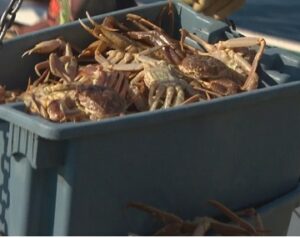
Endangered right whale movements ‘totally different’ in Gulf of St. Lawrence in 2023
“What we saw this year was totally different compared to other years,” said Marcel Hebert of the Acadian Crabbers Association in Shippagan, N.B. “The North Atlantic right whale were found in very shallow waters, under 20 fathoms. It’s the first time we saw that since 2017 when we started to watch.” Their first appearance in the Gulf was a disastrous surprise for a species on the brink of extinction and the people who earn their living in those waters. Twenty of the whales died in the Gulf between 2017 and 2019. In Atlantic Canada, a single right whale detection closes a 2,100 square kilometre area of open water for 15 days and in the Gulf for the entire season if they keep showing up or stay. “Let’s be honest, this is hard for harvesters,” Gilchrist said. >click to read< 09:47
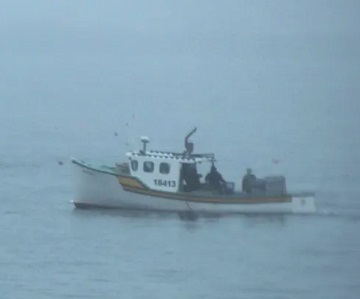
Despite whale detection, western Cape Breton crab fishers will complete quota in days
Part of Snow Crab Area 19, Cape Breton’s largest crab fishing zone in the Gulf of St. Lawrence, has been restricted for at least 15 days by the Department of Fisheries and Oceans (DFO). That comes after a North Atlantic right whale was detected last week by an acoustic sensor near Pleasant Bay. As a result, the Department of Fisheries and Oceans (DFO) has ordered fishers with traps in Area 19 to move them to the far north or south parts of the zone by Monday evening. While it is extra work to move the traps, most fishers anticipate almost no impact on the overall catch. “Catches are good, so a lot of the boats will be finished up in the next couple of days,” said Sandy Doucette, who fishes out of Cheticamp. >click to read< 20:00
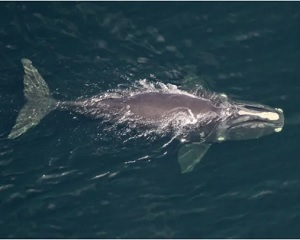
Entangled North Atlantic right whale spotted in Gulf of St. Lawrence
A North Atlantic right whale has been spotted entangled in the Gulf of St. Lawrence, near Lamèque in northeastern New Brunswick. A research vessel saw the whale, a 13-year-old male known as EG No. 4042, east of Lamèque and northwest of Prince Edward Island, on Saturday, Fisheries and Oceans Canada announced Monday. He appears to be carrying a “long trailing line, with no visible buoys,” according to a news release. Groups who respond to marine mammals in distress planned to attempt to disentangle the whale on Sunday morning but couldn’t because of the weather. >click to read< 13:47
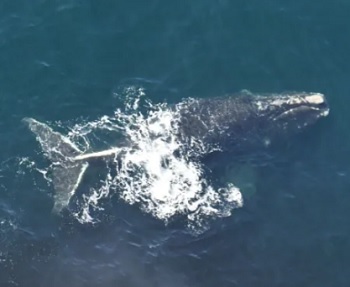
Whale detection shuts down major portion of Cape Breton snow crab fishery
The detection of an endangered North Atlantic right whale in the Gulf of St. Lawrence has forced the temporary closure of a major portion of the snow crab fishery off western Cape Breton. It comes just days after the season opened. The whale was detected by an acoustic sensor. Fishermen have until 5 p.m. Monday to move their gear out of a large closure zone. Many had just dropped their pots. The closure is set for 15 days. The Department of Fisheries and Oceans posted a notice of the closure to harvesters on Friday. It affects about 140 licence holders in what is known as Crab Fishing Area 19. >click to read< 17:22
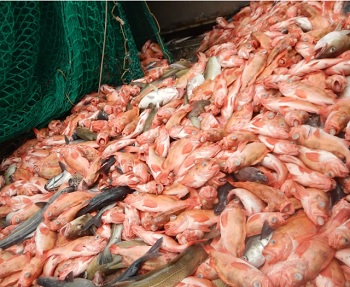
Canada: Positioning for redfish re-opening
Canada’s commercial fishery for redfish in the Gulf of St. Lawrence has remaind closed since 1995 to allow redfish stocks rebuild to healthy levels. Now the authorities are positioning to re-open the Unit 1 redfish commercial fishery in Atlantic Canada and Quebec in the near future. The announcement has been made by Minister of Fisheries Joyce Murray that in preparation for a pending commercial fishery, the 2023 experimental fishery for Unit 1 redfish will be increased from 2500 to 5000 tonnes. Twenty-four individuals and groups from Quebec, New Brunswick, Prince Edward Island, Nova Scotia and Newfoundland and Labrador have been approved to participate, five of which are Indigenous groups. >click to read< 07:48
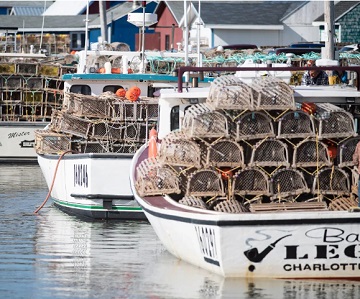
Areas closed to protect North Atlantic Right whales ready to re-open Friday in western P.E.I.
Charlie McGeoghegan, the chair of the Lobster Fishers of P.E.I., said the re-opening is good news. “They were fishing in 80 to 100 feet of water, a lot of them, and the lobster had just started to come on in that area. And then they were forced to pull all the gear out of that area and move it into 60 feet of water or less,” he said. “There’s basically 400 boats in that area or close to it. If you take all those boats and put them in a little narrow strip between the shoreline and 60 feet depth of water … it’s an over-congestion of gear.” McGeoghegan said losses over the past two weeks could be significant for some crews. >click to read< 14:28

Fishing area closed after North Atlantic right whale sighting set to reopen this week
A lucrative lobster fishing area in the Maritimes is set to reopen this week after a sighting of North Atlantic right whales shuttered the fishery just weeks into the spring season. The endangered whales were spotted earlier this month in the Gulf of St. Lawrence, northeast of Prince Edward Island’s Malpeque and Cascumpec Bays. The sighting triggered a 15-day closure of popular lobster fishing grounds — part of Lobster Fishing Area 24. The federal Fisheries Department says the fishing area is set to reopen Friday. But it says two surveillance flights are required before the area reopens to fish harvesters to determine whether whales are still present. >click to read< 13:32
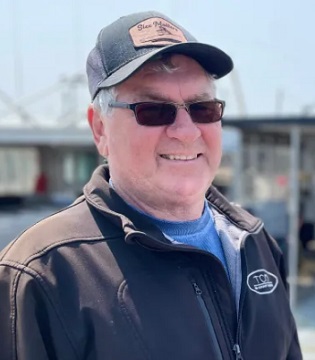
P.E.I. snow crab fishers thankful for big catches as price plummets
Snow crab fishers on P.E.I. say the price they’re getting for their catch is lower than it’s been in years. Crab fishers were getting $8 a pound at the wharf last year. This year, the price has plummeted to $2.25. Fishers in some other parts of the Atlantic region are staying off the water because of the low price. Meanwhile, Island snow crab fishers have wrapped up their season. Carter Hutt, who heads the P.E.I. Snow Crab Association, said the catch was so good this year, he made his full quota in just a couple weeks. The Northport fisherman said that with the price so low and expenses so high, it was the one thing that saved him from losing money. “If you make a trip for 5,000 pounds or come in with 20,000, it basically costs you the same amount for that trip,” he said.>click to read< 19:42
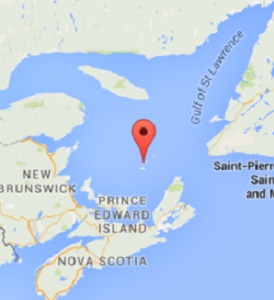
First sighting of right whales in Canadian waters triggers partial fishing closure
The federal Fisheries Department says it has spotted endangered North Atlantic right whales in Canadian waters for the first time this year. The department says two whales were seen Sunday by a surveillance aircraft in the Gulf of St. Lawrence, northeast of the Îles-de-la-Madeleine. It says fishing in the area where the whales were spotted will be closed for 15 days started Thursday at 5 p.m., and a 15-day vessel slowdown will also be in effect. video, >click to read< 18:33
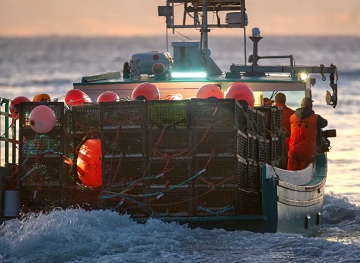
It’s time for Canada to relax fishery closures around right whale sightings, committee says
The standing committee on fisheries and oceans is recommending that the federal government relax the fishing closures it imposes when endangered North Atlantic right whales are sighted in Canadian waters. In a report released Tuesday, the committee said the Department of Fisheries and Oceans Canada should modify its rules for the 2023 season in the Gulf of St Lawrence, Bay of Fundy and Roseway Basin off southern Nova Scotia since most single-whale detections are animals in transit and not staying to feed. It also says season-long closures should rarely be imposed. >click to read< 07:20
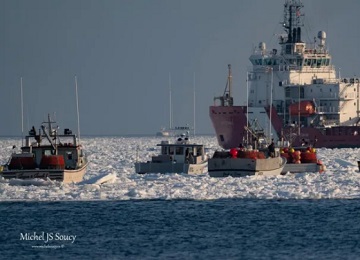
Cape Breton fishermen say ice was a problem because DFO didn’t follow its own policy
Some Cape Breton fishermen say if the Department of Fisheries and Oceans hadn’t opened the Gulf of St. Lawrence snow crab season too early, icebreakers would not have been needed to get boats in and out of Cheticamp harbour. Andrew Bourgeois, president of the Gulf of Nova Scotia Fishermen’s Coalition and a director of the Gulf fleet planning board, said DFO officials usually agree to wait until all the coasts are ice-free, but not this year. “I think if DFO would have followed their protocol, I don’t think there would have been an issue with the ice,” he said. “The protocol says that if there was ice at 20 fathoms or deeper that it shouldn’t open, it wouldn’t open. And they opened it anyways.” >click to read< 13:11
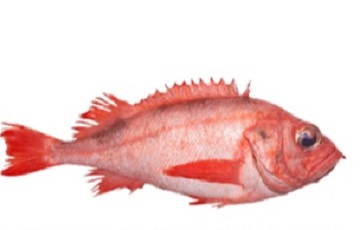
Over a Million Bucks for Bruce – Offshore Companies Get Leg-Up from DFO
This week, news broke that DFO spent untold millions completing two weeks of science work for redfish on the Mersey Venture, a 200-foot factory freezer trawler owned by Mersey Seafoods and part of the offshore lobby group, the Atlantic Groundfish Council headed by Bruce Chapman. Go on, ‘by. Surely the Union’s not out complaining about the government doing more science work when that’s what they’re going on about half the time? In an effort to simplify the complex history behind the issue, I’ll give readers some background. In a nutshell, DFO Science is directly subsidizing corporate offshore fisheries development at the expense of coastal communities and the owner-operator fishery. >click to read< 10:32
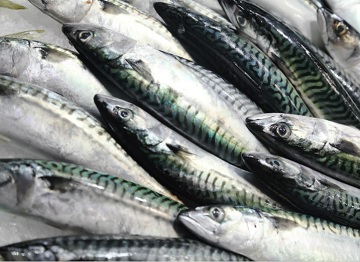
Atlantic mackerel population continues to decline a year after fishery moratorium
The Atlantic mackerel population is continuing to decline after a decade of falling numbers, according to a federal assessment presented to industry and environmental groups in Halifax this week. According to the 2022 assessment, mackerel stock remains in the “critical zone” — where serious harm is occurring — and the average number of fish reaching spawning age is only 27 per cent of what it was between 1969 and 2011. “The amount of young fish entering your population has been rather low in the last couple of years. That’s concerning,” Elisabeth Van Beveren, a biologist with the federal department of Fisheries and Oceans, said. In Newfoundland and Labrador, seafood companies and fishermen have claimed for years that DFO has it all wrong because mackerel are plentiful around their coast. >click to read< 15:32
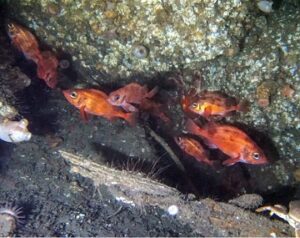
In Cod’s Shadow, Redfish Rise
In the North Atlantic, the trajectory following fisheries collapse has not been forgiving. Even decades after overfishing drove seemingly inexhaustible species like Atlantic cod off a precipice, many populations—most notably, of Atlantic cod—have remained stubbornly low. But in Canada’s Gulf of St. Lawrence, an exception to the rule is emerging from the depths. Redfish, a deep-dwelling species found in the western Atlantic from Baffin Island to New Jersey, is an unlikely hero: a scarlet groundfish the length of a bulldog sporting a faintly outraged expression and a line of spines sharp enough to draw blood. More to the point: aside from readers of Dr. Seuss, who’s even heard of a redfish? >click to read< 10:10
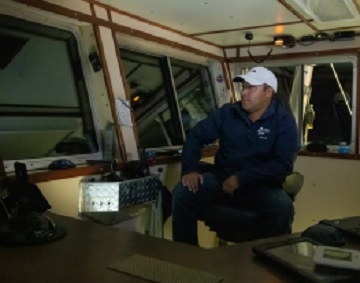
How new fishing technology could help save North Atlantic right whales
Captain Martin Noel and his crew have returned to the fishing grounds to retrieve their crab traps from the Gulf of St. Lawrence, about 140 kilometres off Shippagan, N.B. At the press of a button on Noel’s smartphone, an acoustic signal from a floating transducer pings an oxygen tank at the bottom of the ocean. That cues the tank to inflate a buoy, in turn, sending to the surface a line of traps from 300 feet below. Brimming with one of Canada’s most lucrative seafood catches, snow crab, these on-demand traps are pivotal to Canada’s plans to protect one of the world’s most critically endangered populations of large whales. >click to read< 10:06
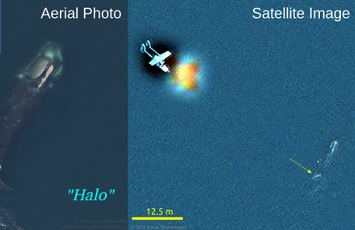
New satellite imagery first to identify North Atlantic right whale from space
New satellite imagery research led by the University of Ottawa is the first to identify a specific endangered Gulf of St. Lawrence North Atlantic right whale from space. Matus Hodul: “The North Atlantic right whale is critically endangered, with about 336 individual whales accounted for. Mortality comes from whales being hit by ships and becoming entangled in fishing gear, so being able to detect and monitor their location is important to conservation efforts. Knowing where the whales are at any given time enables fisheries to open or close to avoid the whales and enables ships to bypass them to prevent collisions.” >click to read< 07:46 ‘Individual North Atlantic right whales identified from space’ >click<

Canada is doing its part to protect right whales
Since 2017, the Canadian lobster industry feels like it’s been trapped in a “South Park” episode. There has been a steady drumbeat eager to “Blame Canada” for the plight of North Atlantic right whales. Right whales were rarely observed in the Gulf of St. Lawrence until recently. All that changed in 2017 when a large number unexpectedly moved to the Gulf. Tragically, we lost 17 right whales: 12 in Canadian waters and five in the United States. Two of the 12 Canadian fatalities were found to be caused by crab gear entanglements. Our Maine peers have made huge strides and sacrifices in recent years to protect right whales. Canada has also been leading the way, with the most aggressive management measures in the world. >click to read< By Geoff Irvine and Nat Richard 15:55
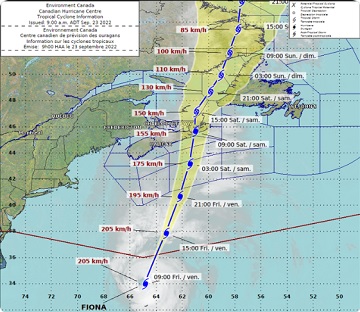
Canadian Hurricane Centre says Hurricane Fiona will be ‘historic, extreme event’
The Canadian Hurricane Centre says Hurricane Fiona will make landfall in eastern Nova Scotia as a powerful post-tropical storm early Saturday. In a Friday afternoon briefing, Bob Robichaud, a warning preparedness meteorologist with the centre, cautioned people not to focus on the hurricane’s track since its effects will be felt across a swath of eastern Canada. Environment Canada says this includes much of Nova Scotia, P.E.I., southeastern New Brunswick, western and southwestern Newfoundland, and some parts of Quebec bordering the Gulf of St. Lawrence. >click to read< – Current Hurricane Conditions – Environment Canada (weather.gc.ca) 13:54
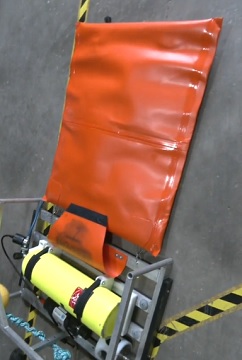
Innovative ropeless fishing gear helps prevent whale entanglements
When fishing zones get closed down due to whale sightings, fish harvesters now have a new place to turn. Can Fish is a program set up by the Canadian Wildlife Federation to allow fishers to test out and use groundbreaking ropeless technology for free. The North Atlantic right whale is one of many marine species being impacted by the changing ocean temperatures in a warming world. The whales have been swimming northward moving from the Bay of Fundy to the Gulf of St. Lawrence,,, The Canadian Wildlife federation is trying to lessen this risk by popularizing the use of ropeless fishing gear through its newly introduced Can Fish program. At a warehouse in Halifax, Nova Scotia, fish harvesters can show up and borrow innovative ropeless fishing gear for free. The catch? These fishers need to provide data collected as they use the innovative technology in order to help build future designs of the equipment. Video, photos, >click to read< 17:30

Entanglement blame game good for wallets, not for whales
In response to the dissemination of “misleading and false information” about the Maine lobster fishery and their interaction with right whales, not even the federal government (NOAA/NMFS) attributes a right whale death to the Maine fishery. In fact, only two whales have ever been seen in Maine lobster gear and the last one was 18 years ago. A red marker found on gear in 2012 could have come from anywhere in New England. Maine lobstermen voluntarily changed their marker color to purple in 2020 to clearly differentiate themselves from the other New England states and to avoid any further allegations. Deaths and serious injuries in Maine lobster gear have remained constant at zero since right whale observations were initiated. To improve on that is impossible. >click to continue reading<, By Jack Merrill 15:35






